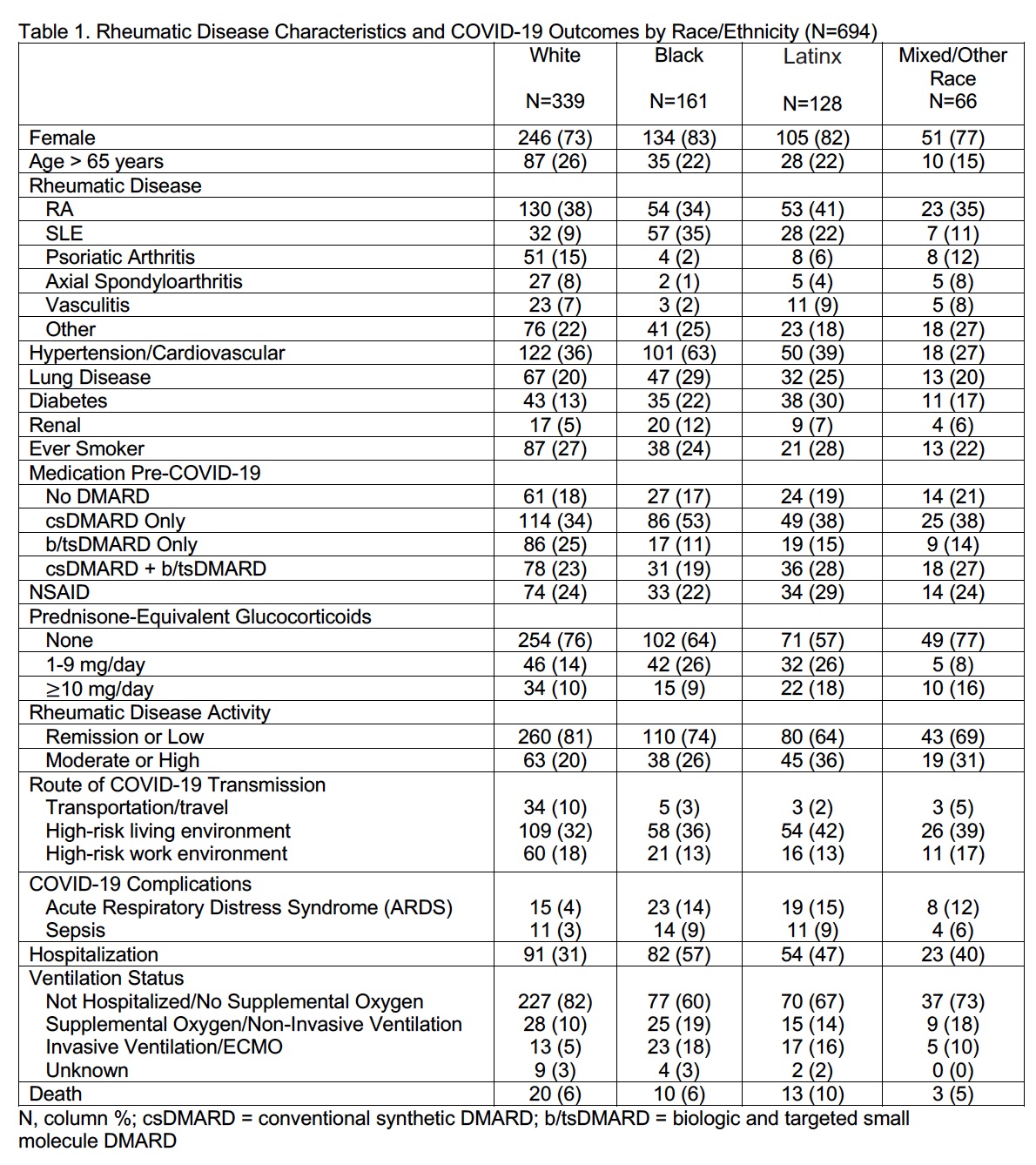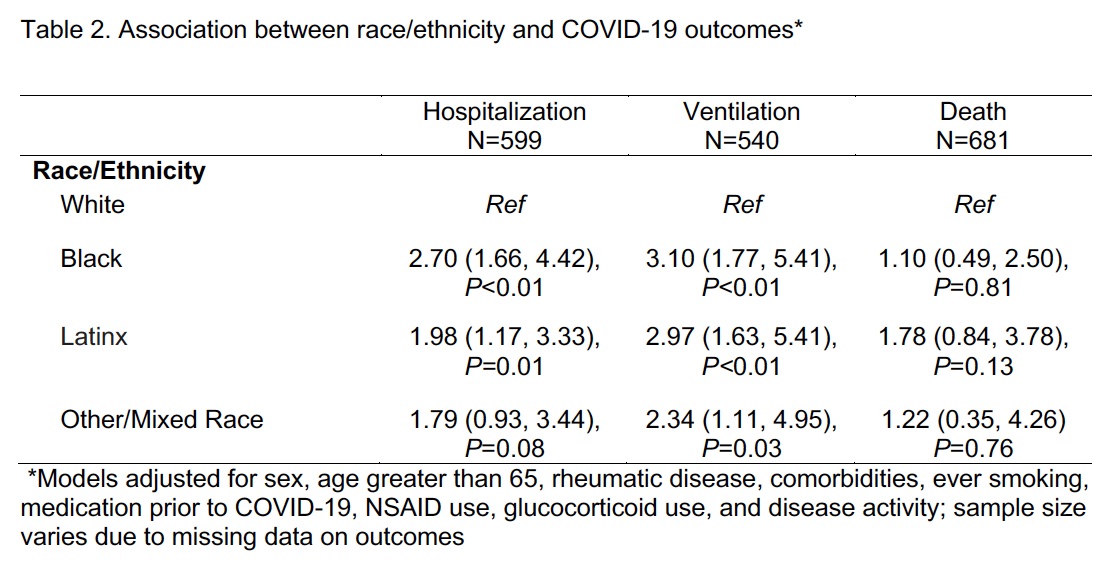Session Information
Date: Friday, November 6, 2020
Title: Epidemiology & Public Health Poster I: COVID-19 & Rheumatic Disease
Session Type: Poster Session A
Session Time: 9:00AM-11:00AM
Background/Purpose: Individuals with rheumatic disease, particularly those on immunosuppressive medications, have a higher risk of developing severe infections. However, whether these patients experience more severe outcomes of COVID-19 is unknown, as is whether outcomes vary by race/ethnicity as has been demonstrated in the general United States (US) population. The aim of this study was to examine the association between race/ethnicity and COVID-19 hospitalization, ventilation status, and mortality in people with rheumatic disease using data from the largest case series to date.
Methods: Patients with rheumatic disease and COVID-19 from the COVID-19 Global Rheumatology Alliance physician registry from March 24, 2020 to May 22, 2020 were included. The analysis was limited to patients in the US. Race/ethnicity was defined as white, black, Latinx and other. COVID-19 outcomes included hospitalization status (yes/no), requirement for ventilatory support (not hospitalized/no supplementary oxygen; supplementary oxygen or non-invasive ventilation; invasive ventilation/ECMO), and death (yes/no). Multivariable logistic regression was used to estimate odds ratios (ORs) and 95% confidence intervals (CIs) of hospitalization; ordinal logistic regression was used to estimate ORs and 95% CIs of ventilatory support; and Poisson models were used to estimate ORs and 95% CIs of mortality. All models were controlled for age, sex, smoking status, rheumatic disease diagnosis (RA, SLE, PsA, AS or other spondyloarthritis, other), comorbidities (hypertension/cardiovascular disease, lung disease, diabetes, and chronic renal insufficiency/end stage renal disease), rheumatic disease medications taken prior to infection (conventional synthetic DMARD (csDMARD) monotherapy; biologic and targeted small molecule DMARD monotherapy (b/tsDMARD); csDMARD + b/tsDMARD combination therapy), NSAID use, prednisone-equivalent glucocorticoid use, and rheumatic disease activity (remission/low vs. moderate/high).
Results: A total of 694 patients were included. Disease characteristics and outcomes by race/ethnicity are shown in Table 1. In multivariable models, racial/ethnic minorities were more likely to experience poor outcomes, including hospitalization and requirement for ventilatory support, compared to white patients (Table 2). Black and Latinx patients had 2.70 and 1.98 higher odds of being hospitalized compared to white patients, respectively (P< 0.01, P=0.01). Black and Latinx patients also had a three-fold increased odds of requiring ventilatory support compared to white patients (P< 0.01). No differences in mortality based on race/ethnicity were found.
Conclusion: Similar to findings in the general US population, we found that racial/ethnic minority patients with rheumatic disease had increased odds of hospitalization and invasive ventilation in the rheumatic disease population even after adjustment for disease and comorbidities. These results further illustrate health disparities related to COVID-19 and suggest that attention should be drawn to addressing the needs of vulnerable populations during public health emergencies.
To cite this abstract in AMA style:
Gianfrancesco M, Leykina L, Izadi Z, Harrison C, Bhana S, Costello W, Grainger R, Hausmann J, Liew J, Sirotich E, Sufka P, Wallace Z, Schmajuk G, Machado P, Robinson P, Yazdany J. Race/ethnicity Is Associated with Poor Health Outcomes Amongst Rheumatic Disease Patients Diagnosed with COVID-19 in the US: Data from the COVID-19 Global Rheumatology Alliance Physician-Reported Registry [abstract]. Arthritis Rheumatol. 2020; 72 (suppl 10). https://acrabstracts.org/abstract/race-ethnicity-is-associated-with-poor-health-outcomes-amongst-rheumatic-disease-patients-diagnosed-with-covid-19-in-the-us-data-from-the-covid-19-global-rheumatology-alliance-physician-reported-regi/. Accessed .« Back to ACR Convergence 2020
ACR Meeting Abstracts - https://acrabstracts.org/abstract/race-ethnicity-is-associated-with-poor-health-outcomes-amongst-rheumatic-disease-patients-diagnosed-with-covid-19-in-the-us-data-from-the-covid-19-global-rheumatology-alliance-physician-reported-regi/



